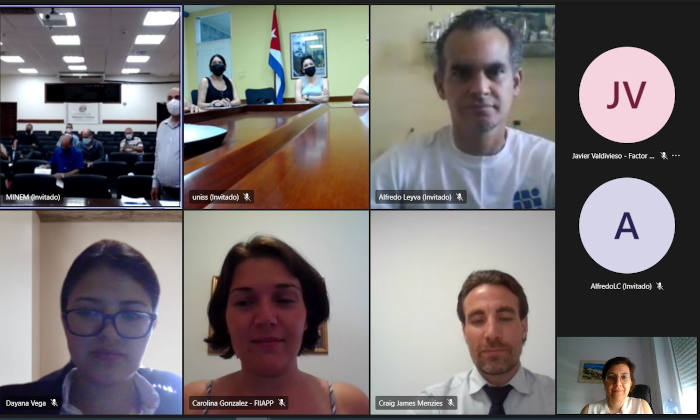
20/08/2021
The European project to promote renewable energies supports the implementation of climate change preventive and mitigation measures in Cuba
The international community is stepping up efforts to tackle climate change, and international organisations themselves are accelerating actions to reduce greenhouse gas emissions in the atmosphere and achieve the long-term climate goals set by the Paris Agreement. One of the mechanisms being promoted are subsidies to countries to implement policies and actions to adapt to climate change through what are known as “Climate Funds”.
Cuba has established the fight against climate change as a national priority, increasing the use of renewable energy sources (RES) and energy efficiency (EE) measures, to address the growing threat to island countries. The country has been working on different projects for years to increase resilience to the effects of climate change and is implementing a new policy to achieve energy independence, increasing power generation facilities through renewable sources (such as photovoltaic parks and biomass plants) in addition to more efficient management of energy consumption and demand.

FIIAPP, through the project it manages with Cuba to promote renewable sources, which is funded by the European Union, supports the efforts of the Cuban government to implement preventive and mitigation measures that enable them to face all these challenges. To achieve this, an online training course was held on the theme “preparing energy efficiency projects and renewable energy sources for climate funds” which was attended by more than 50 specialists from Cuban institutions.
This training was an opportunity to share knowledge about mechanisms and tools for financing climate projects. Knowledge that will be very useful, since access to these funds is key to obtaining financing for projects to halt climate change.
During the three-day course, the main issues and requirements of the existing mechanisms, methodologies for calculating the reduction in greenhouse gases, vulnerability analysis, calculation of indicators, risk measurement and economic feasibility were addressed, as well as analysis of case studies.
The training was the result of synergies between the four Projects that are part of the ” Support Programme for Cuba’s Energy Policy“. It involved the participation of representatives from the management of the “Exchange of experiences EU-Cuba for the promotion of renewable sources of energy and energy efficiency in Cuba” project, the Central Office for the Control of the Rational Use of Energy (ONURE), representatives from the “Connecting knowledge” project, of the National Group of Universities for the FRE and EE (GNUFRE), members from the “Local FRE Project” of the Directorate of Renewable Energy, MINEM, the University of Sancti Spiritus, the Centre for Energy and Environment Studies of the University of Cienfuegos (CEEMA), the Centre for Energy Studies and Environmental Technologies of the Central University of Las Villas (CEETA) and Higher Business Management Bodies (Spanish acronym: OSDE).



